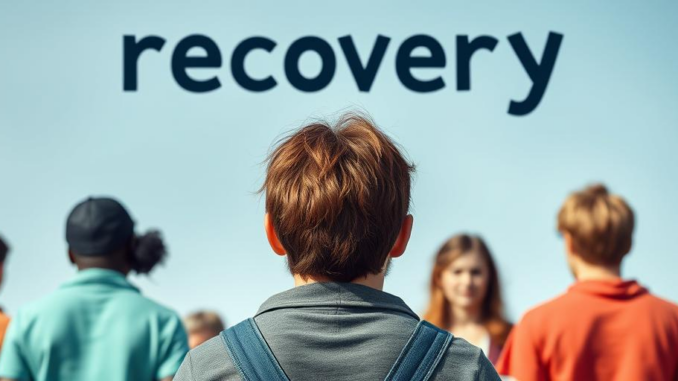
Summary
This article explores the evolving landscape of addiction recovery, highlighting the shift from silence and shame to open dialogue and advocacy. It discusses the detrimental effects of stigma on individuals seeking help and the importance of person-first language in fostering a supportive environment. Finally, it examines various programs and initiatives that empower individuals to share their stories and promote understanding.
** Main Story**
For far too long, the stigma around substance use disorders has kept people hidden in the shadows, silencing their voices and making recovery even harder. But things are starting to change. A powerful movement is encouraging people to “recover out loud,” which is a way of challenging the false ideas that create shame and discrimination. This shift, towards honest conversations and advocacy, it’s a really important step in the fight against addiction, don’t you think?
The Crushing Weight of Stigma
Think about it: stigma can really mess with someone’s recovery. It makes it harder for them to reach out for help, and it makes their struggles even worse. Those negative stereotypes and judgmental attitudes lead to feelings of shame, guilt, and isolation, which can actually drive them further into drug-seeking behavior. It’s a vicious cycle! People are often afraid to talk about their substance use with doctors and therapists, because they’re scared of being judged or rejected. This prevents them from getting the vital treatment and support they need, and honestly it’s a fair fear. Studies have shown that people with substance use disorders, they often face bias and mistreatment in healthcare settings. It’s disheartening, to say the least.
The Power of Person-First Language
Now, language is key in how we see and talk about substance use disorders. Using labels like “addict” or “abuser” only reinforces negative stereotypes and strips people of their humanity. Instead, we should be using person-first language, like “person with a substance use disorder.” This puts the focus on the person, not the condition. It makes it clear that addiction is a medical issue, not a moral failing. I remember reading a study that showed how person-first language can really reduce stigma and create a more compassionate environment. Even organizations like the Canadian Centre on Substance Use and Addiction, they’ve removed stigmatizing language from their titles, showing a real commitment to a more supportive approach. I’m all for it.
Programs and Initiatives: Empowering Voices
There’s a growing number of programs and initiatives that are working to empower individuals to share their stories and become advocates for change. Organizations like the Hazelden Betty Ford Foundation, for instance, they offer platforms for recovery advocacy, providing resources and support for people to become active voices in their communities. And then you have grassroots movements like Project Vox, which is spearheaded by CARE of Southeastern Michigan. They’re focused on influencing public policy and supporting substance use disorder prevention and treatment programs. I think that these initiatives provide a crucial space for people to connect, share their experiences, and collectively challenge the stigma surrounding addiction.
A Multifaceted Approach to Recovery
Recovery, it’s not a one-size-fits-all kind of thing. It’s often a complex journey that requires a multifaceted approach.
- Treatment options can range from outpatient counseling and inpatient rehabilitation.
- There is also behavioral health care.
- And the option of medication-assisted treatment (MAT).
MAT, which combines medication with counseling and behavioral therapies, it’s been especially effective in treating opioid use disorder. It helps people manage cravings and withdrawal symptoms, which is huge. Plus, you’ve got support groups like Narcotics Anonymous, which offer invaluable peer support and connection. It’s a safe and encouraging environment for people to share their struggles and celebrate their successes. It is important to remember recovery is an ongoing process, and relapses, they do happen. Building a strong support system and having access to ongoing care, it’s crucial for staying sober and navigating any challenges that come up. The U.S. Department of Labor, they even recognize the importance of a supportive workplace in recovery, encouraging organizations to use neutral, science-based language and person-first framings to reduce stigma and create a healthier environment. Which, ultimately, benefits everyone.
Breaking the Silence: A Path to Hope
The “recover out loud” movement, it’s not just about sharing individual stories; it’s about changing the whole narrative around addiction. By speaking up and challenging the stigma, people in recovery are creating a path to hope and healing for themselves and others. They’re showing that recovery is possible, that addiction is a treatable medical condition, and that asking for help is a sign of strength, not weakness. And the more people share their experiences, the more it creates a ripple effect of change, fostering a society that’s more compassionate, understanding, and supportive for everyone affected by addiction. As of today, this evolution in recovery approaches, it offers a beacon of hope for a future where addiction is treated with the same level of understanding and compassion as any other chronic illness. Don’t you agree?


Be the first to comment